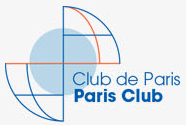The debt treated in the Paris Club agreements
The debt treated in the framework of Paris Club agreements constitutes only a part of the total external debt of developing countries, as regards the categories of debt as well as the time period taken into account (flow or stock treatments).
Among the different types of debt, Paris Club agreements generally concern only:
- public debts, as the agreement is signed with the government of the debtor country unable to meet its external obligations. Debts owed by private entities and guaranteed by the public sector are considered to be part of the public debts. On the creditor side, the debts treated are credits and loans granted by Paris Club creditors' governments or relevant institutions, as well as commercial credits guaranteed by them.
- medium- and long-term debts. Short-term debts (debts with a maturity of one year or less) are usually excluded from the treatments, as their restructuring can significantly undermine the debtor country's capacity to participate in international trade.
- debts granted before the initial date set when the debtor country meets with the Paris Club, also known as the cut-off date.
Flow treatments
Flow treatments aim to close the debtor country's financing gap identified by the IMF in the framework of its programs. The gap is the result of external resources - exports, reserves, revenue from foreign assets, remittances, foreign direct investment (FDI), loans and grants - not covering external needs - imports, debt service, repatriation of dividends produced by FDI.
Paris Club agreements usually coincide with the period of time covered by the IMF program, which demonstrates a financing gap that can only be covered by debt rescheduling. This period is called the "consolidation period".
Only maturities owed to Paris Club creditors and falling due during this period are treated. However, in some cases, arrears accumulated as of the start of the “consolidation period” are also treated.
Stock treatments
Some Paris Club treatments apply not only to the payments due over a given period of time, but to the entire stock of debt. The aim of agreements covering the stock of debt is to provide a country with a final Paris Club treatment called an exit treatment. Such agreements are used in two cases:
- Under the HIPC initiative, the action taken by Paris Club creditors in accordance with this initiative takes the form of a stock treatment granted at completion point;
- In other cases, stock treatments may be granted, on a case-by-case basis, for countries that have a satisfactory track record with both the Paris Club and the IMF and where there is sufficient confidence in the debtor country's ability to meet its obligations under the debt agreement.

